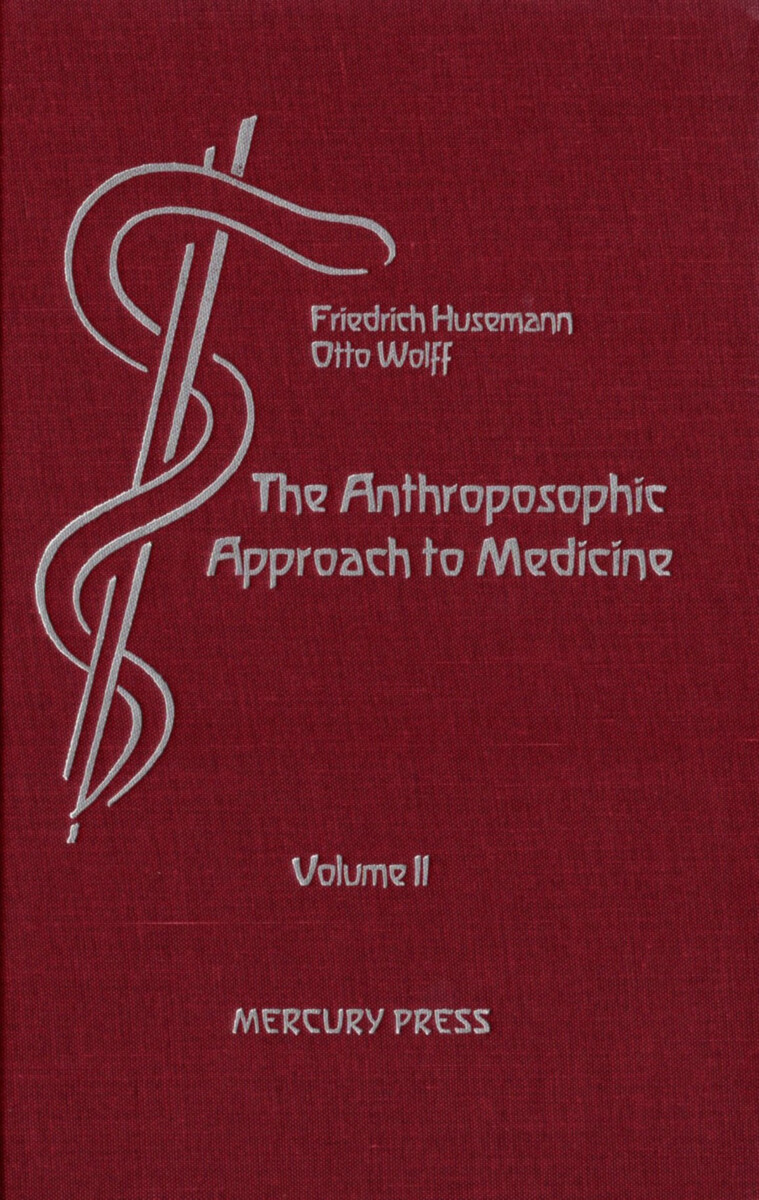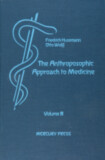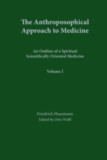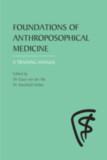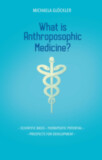The Anthroposophic Approach to Medicine
Volume 2: An Outline of a Spiritual Scientifically Oriented Medicine
- Publisher
Mercury Press - Published
1st June 2014 - ISBN 9781935136125
- Language English
The Anthroposophic Approach to Medicine (vol. 2) is directed primarily toward healthcare professionals. The text addresses anamnesis and diagnosis, aspects of therapy and healing, drug therapy, physical therapy, remedies, the fourfold organ system, the liver gall system and its diseases, the renal system and its diseases, the cardiovascular system and its diseases, the lungs and their diseases in addition to including extensive notes and references.
This is a classic reference for practitioners and anyone interested in a better understanding of anthroposophic medicine and it’s methods and therapies.
Edited and revised by Otto Wolff, this volume is a translation of Das Bildes Menschen als Grundlache Geistesleben (Stuttgart).
C O N T E N T S:
GENERAL PATHOLOGY AND THERAPY:
Anamnesis and Diagnosis
Aspects of Therapy
Drug Therapy
Physical Therapy
Remedies
SPECIFIC PATHOLOGY AND THERAPY:
The Fourfold System
The Liver-Gall System and Its Diseases
The Renal System and Its Diseases
The Cardiovascular System and Its Diseases
The Lungs and Their Diseases
Notes and References
Friedrich Husemann, MD
Dr. Friedrich Husemann (1887–1959) was born in in northeast North Rhine-Westphalia in north Germany, the first son of a Protestant pastor. He originally wanted to study theology (as his brother Gottfried did later on), but eventually decided on medicine. He met Rudolf Steiner while a studying medicine, and finished his training in 1920 with a specialty in psychiatry. Based on the fundamental ideas of Anthroposophy, Dr. Husemann developed a variation of conventional medical-therapeutic practice. He divided this model into three areas: physical therapy through medication and external applications; artistic therapy; and psychotherapy. In 1930, he founded the Wiesneck Sanatorium. It was later named after him as the Friedrich Husemann Clinic in Buchenbach near Freiburg im Breisgau, which specializes in psychiatry and psychotherapy. The clinic continues to be based largely on Husemann's work. During the Nazi period, Friedrich Husemann sought to save the lives of his patients and prevent them falling victim to the Nazi authorities. He died in Buchenbach, a municipality in the southwest Black Forest.


